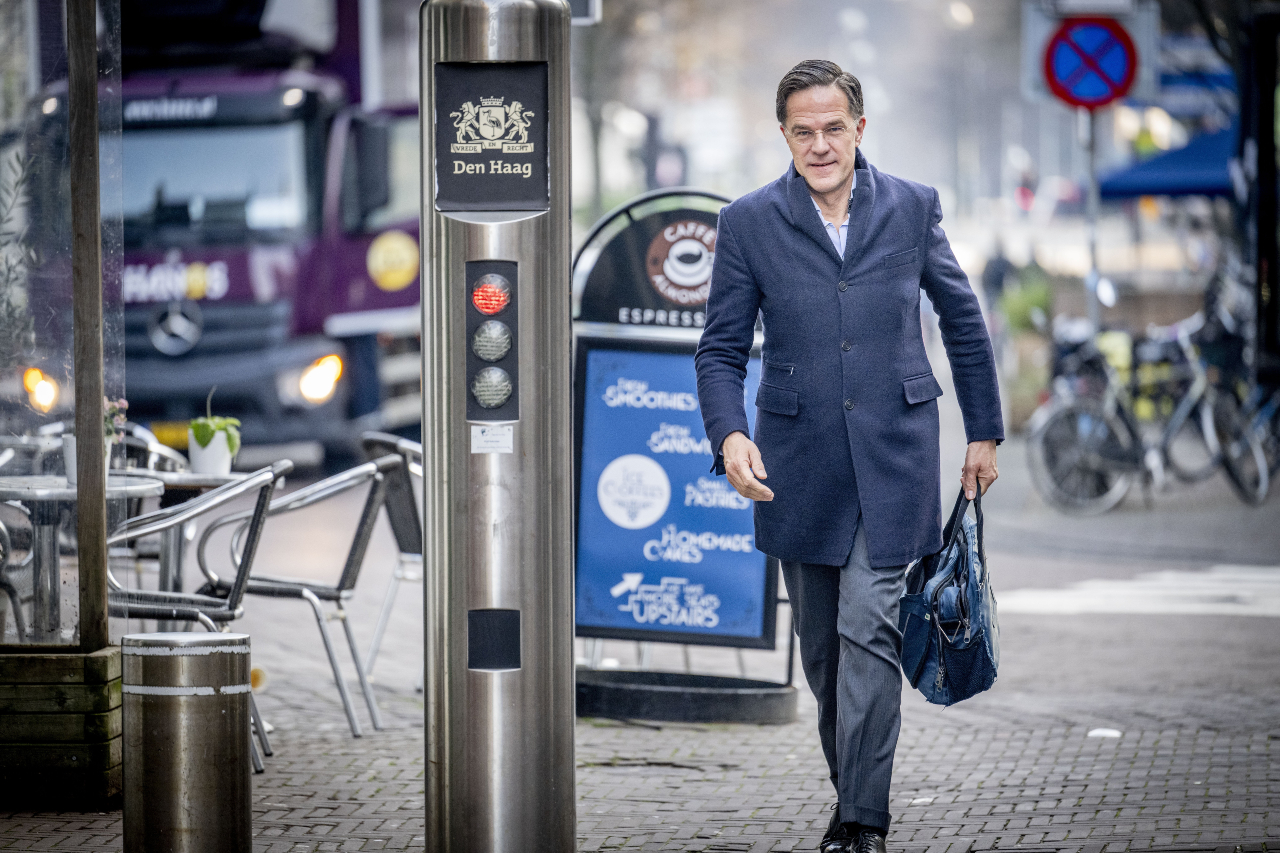Rutte’s cabinet keeps grip on power as coalition talks stall
Gordon Darroch
As the four parties trying to form the next Dutch government slowly edge towards their goal, the outgoing cabinet has been increasingly unshackled by the “caretaker” label.
Officially Mark Rutte’s team of ministers has not had a mandate to govern since July, when the coalition broke down after failing to agree new rules to restrict inbound migration.
The four parties – VVD, D66, CDA and ChristenUnie – won 41 seats in November’s election, only four more than Geert Wilders’s anti-Islam PVV.
But while Wilders and his prospective partners – VVD, NSC and BBB – have struggled to overcome their mutual distrust and find a formula for a new government, the caretaker administration has become increasingly coherent and assertive.
Three weeks ago defence minister Hanke Bruins Slot announced the government had agreed a 10-year security treaty with Ukraine, despite protestations from Wilders, whose party is reluctant to provide any further military or financial support. Last week the PVV stayed away from a debate in parliament on the progress of the war, while its senators recently voted against a financial aid package.
“Keep going”
Other ministers are unwilling to wait for the coalition talks to conclude, such as housing minister Hugo de Jonge, who recently sent a bill to parliament which would allow his department to draw up a new programme of building projects after July 1.
De Jonge told NRC he was unprepared to allow the acute housing shortage to become worse while the coalition talks stall. “We’re going to keep going until parliament says ‘woah’,” he said. “Until then I say: ‘go’.”
The cabinet has also taken key decisions such as shutting down the Groningen gas fields for good and reforming the system by which students earn credits towards their degrees in recent months.
Since the fall of Rutte’s previous cabinet at the start of 2022, Dutch governments have had a formal mandate from parliament for 543 days, but spent 615 days in a caretaker capacity. Two of the last three annual budgets have been drawn up by interim administrations.
Extra-parliamentary cabinet
The right-wing parties are currently trying to form an “extra-parliamentary” cabinet with some ministers from outside the political parties, rather than a formal coalition.
Commentators have described it as a risky experiment, but one minister told the FD last week: “Effectively we already have an extra-parliamentary cabinet: us.”
One reason the caretaker government has been able to continue legislating is that the last parliament declared relatively few bills “controversial”, meaning they are off limits until a new cabinet takes office.
Only 61 documents, nine of which relate to reforming the road tax system, have been officially shelved by parliamentary order, giving ministers a free hand to make decisions even on subjects that are known to be contentious.
Asylum law
One example was the “spreading law” allowing the junior justice minister, Eric van der Burg, to overrule local councils who failed to provide accommodation for asylum seekers. The issue was a source of deep division within the last coalition and particularly for the VVD party, where Van der Burg’s law was opposed by his colleague, justice minister Dilan Yesilgöz.
As VVD party leader, Yesilgöz tried to pass a motion in the Lower House calling on the Senate not to vote on the law until the coalition talks had concluded. But senators ignored the plea and approved the law, with the VVD group providing the crucial votes after taking Van der Burg’s side.
The cabinet also recently decided to award a €5.65 billion contract to build four new submarines to the French state-backed shipbuilder Naval, passing over a bid by Swedish manufacturer Saab that included the Dutch shipyard Damen.
“No” to nature restoration
But the outgoing government has not had things all its own way. Last week nature minister Christianne van der Wal agreed to vote against the European Union’s law on nature restoration when it comes up at the council of ministers, after MPs passed a motion calling on her to vote “no”.
Van der Wal had supported the plans, which have been approved by the European Parliament, but said she would respect the decision of parliament, albeit reluctantly.
The proposed law, which sets a target for the EU to restore at least 20% of its land and sea by the end of the decade, had already been watered down in the wake of recent farmers’ protests.
Thank you for donating to DutchNews.nl.
We could not provide the Dutch News service, and keep it free of charge, without the generous support of our readers. Your donations allow us to report on issues you tell us matter, and provide you with a summary of the most important Dutch news each day.
Make a donation